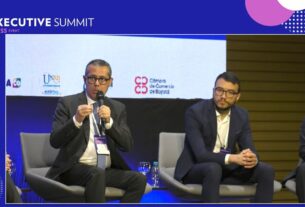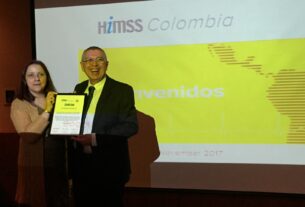Researchers, scientists and innovators often waste time and money repeating experiences that have already been done in other parts of the world. The problem is easy to identify: a lack of information about the research that has been done and the results.
Seeking to reduce mistakes and the waste of resources and also to accelerate processes, Professor Yunkap Kwankam is organizing a global repository of information about eHealth that but will include actual experiences as well as integrating data and statistics.
The project, called Global Knowledge Commons for eHealth (GKC), forms part of the initiative Every Woman Every Child, run by the Secretary General of the United Nations (UN).
In an exclusive conversation with E-Health Reporter Latin America, the Executive Director of the International Society for Telemedicine & eHealth explains that the purpose is to re-use pre-existing information for continued research and to create value.
When will the Global Knowledge Commons for eHealth be launched?
We don’t yet have a date. But we want to publish the report that establishes the guidelines over the next few days. It will then be a question of finding financial support to build a platform that will allow those depositing information to communicate with each other. With luck we will be able to launch it at the end of the year but for the moment it is difficult to set a date.
How did the GKC initiative arise?
We noted that in Healthcare there are very few, if any, challenges that are completely new. This made us think that whatever the challenge in question there is a chance that someone somewhere in the world has faced it and found a successful solution: especially in the field of innovation.
So we imagined the contribution that eHealth would make to Healthcare if for each problem detected we could access all the relevant information available in the world. And that’s not all, we also imagined how everyday practices would work if we could filter the relevant data according to the pertinent questions for each problem or even provide us with different options for acting.
GKC is based on the premise that if each of us knew what everyone else knows, there’d be very few problems that we could not solve.
What financial support is there for the project?
We have the support of many organizations that act in eHealth; originally we had the resources of around fourteen organizations. And recognizing that the creation of knowledge occurs in many different contexts, we hope that the number of nodes in our network will grow exponentially to include smaller efforts, more than anything so that people can innovate in their use of ICTs in healthcare and are ready to share their products, services and experiences with others. We also have users who can benefit from consulting the GKC and contribute to the database as they’d share the re-usable knowledge from their own experiences.
What is the make-up of the working team?
For the moment, we have twelve members from the United States, Europe, Africa and Latin America. We haven’t worked with people from Asia because of the time difference. We all form part of organizations such as the UN, the European Union, USAID, academic institutions, NGOs, professional companies and the key repositories that already exist as a foundation. One of our members, for example, executes HingX, a platform that we will use as a model to build the GKC.
Does the initiative require a significant investment?
Yes, building a platform will require an initial investment and maintaining it will require further resources. We hope that development organizations, which currently spend large sums of money on projects that repeat methods that have already been implemented will find our idea attractive and pay for the initial costs. We will seek the support of organizations in developed countries such as USAID (United States), DFIC (United Kingdom), DFATD (Canada), SIDA (Sweden), NORAD (Norway), DANIDA (Denmark), JICA (Japan), and AID (Australia).
These organizations will find value in the GKC, as it will save them a lot of money in terms of repeating mechanisms, they will simply be able to take advantage of work that has already been done and progress from there. That’s why I think that they will be interested in providing support, economically and intellectually it makes a lot of sense. In any case, a governance system will be established to clarify the financial, legal, ethical and other aspects of the GKC.
What will be the requirements to consult it?
To have internet access and adhere to a code of conduct that will have two components: guidelines to be followed in the repositories and signing up to the principles of the web pages that will provide access to those repositories.


